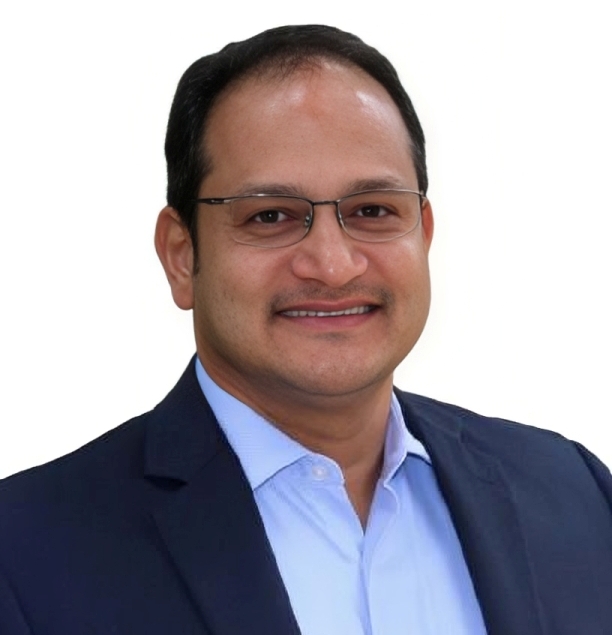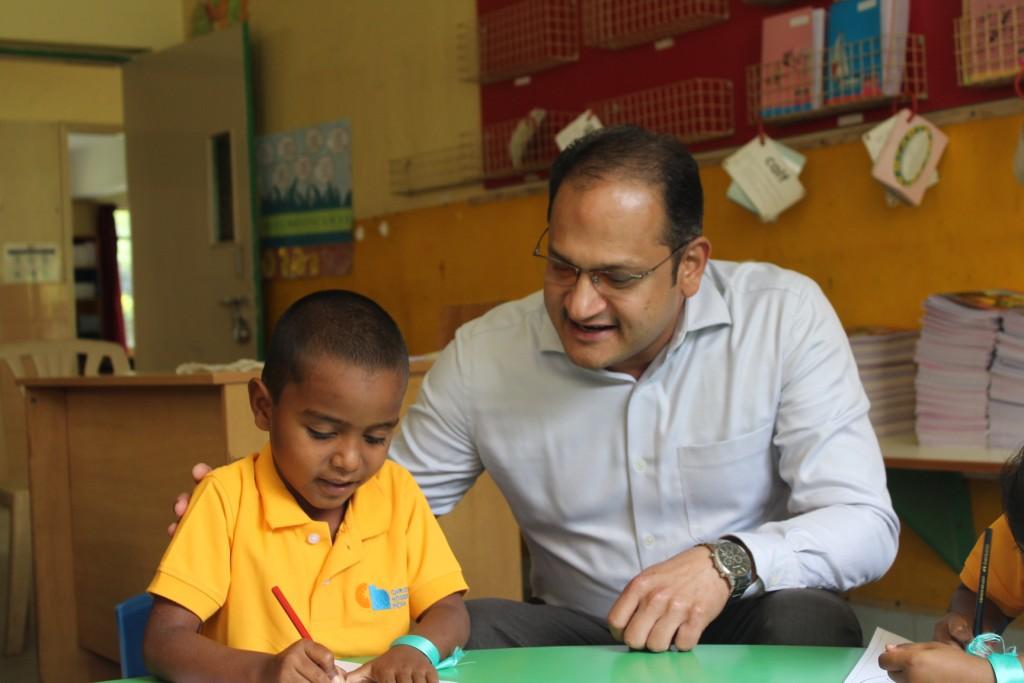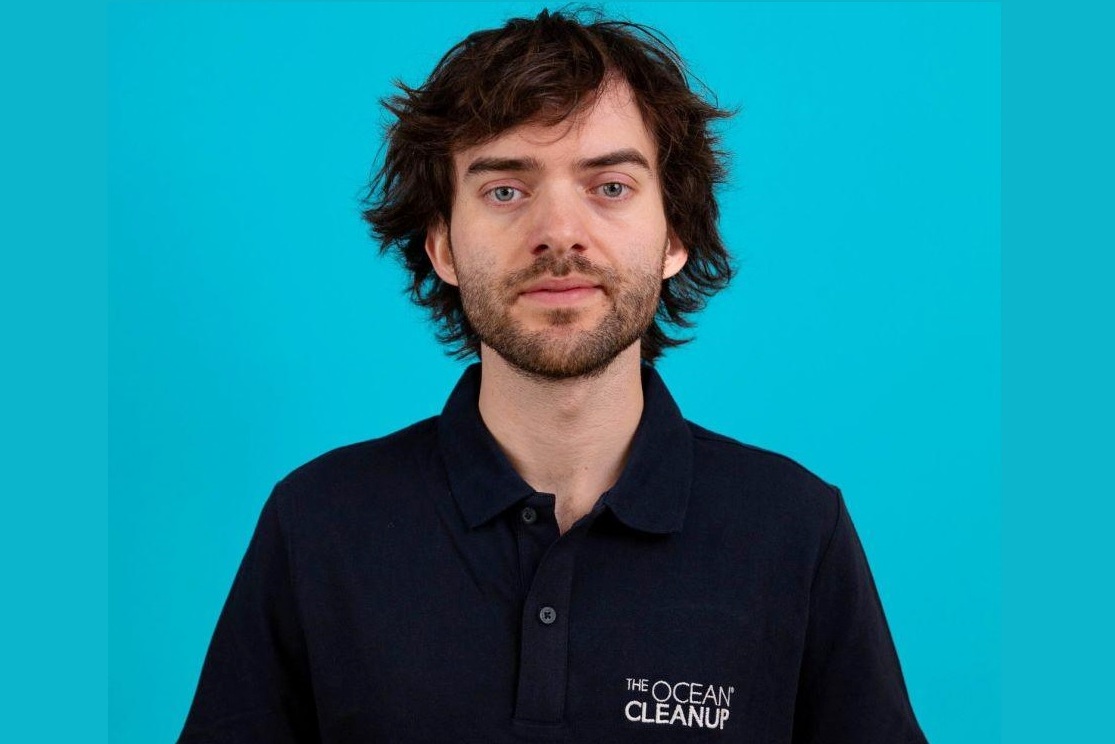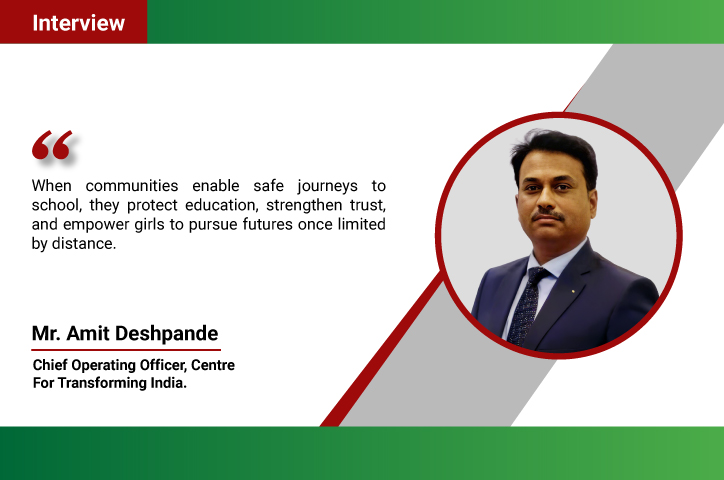In a country where conversations on education often centre around access and infrastructure, Christel House India (CHI) has distinguished itself with a holistic approach that goes far beyond academics. For over two decades, the organisation has been working with children from deeply underserved communities — offering not just free, quality education but also nutrition, healthcare, emotional wellness, and family engagement. Its mission is clear: to help every child move not just from classroom to college, but from classroom to life.
 What began in 2001 as a single school in Bengaluru has now grown into a thriving network — with a successful campus in Atal Nagar and an upcoming flagship school in Pune. Along the way, CHI has built an ecosystem that uplifts families and strengthens communities. Mothers’ committees now address issues like healthcare, hygiene, and alcoholism; parents are active partners in learning; and graduates are breaking generational cycles of poverty by stepping into professional and leadership roles. Each success story is a testament to what happens when dignity and opportunity come together.
What began in 2001 as a single school in Bengaluru has now grown into a thriving network — with a successful campus in Atal Nagar and an upcoming flagship school in Pune. Along the way, CHI has built an ecosystem that uplifts families and strengthens communities. Mothers’ committees now address issues like healthcare, hygiene, and alcoholism; parents are active partners in learning; and graduates are breaking generational cycles of poverty by stepping into professional and leadership roles. Each success story is a testament to what happens when dignity and opportunity come together.
In this TheCSRUniverse interview, Mr. Jaison C Mathew, CEO of Christel House India, reflects on two decades of growth, learning, and leadership. He shares how the organisation has scaled a deeply human model of education without losing its personal touch — and how long-term CSR partnerships, community trust, and patient investment can create transformation that lasts well beyond the classroom.
Read on.
Q&A
Q. Christel House India works with children from underserved communities. Could you start by sharing its mission and the vision that drives your work in India?
A. India is home to over 250 million children. Yet less than 8% will ever graduate from university. For children from socio-economically disadvantaged communities, this number drops even further. At Christel House India, we refuse to accept this as inevitable. We're on a mission to rewrite this story for a small group of children and show what is truly possible.
Christel House India works with children who come from deep-rooted cycles of neglect, systematic barriers, and limited opportunity. But our philosophy is simple: every child deserves a chance to dream, to be seen, and to be heard. At CHI, we don’t believe in offering just academics. We provide a safe space, holistic education, strong life skills, career readiness, emotional well-being support, and everything a child needs to move from survival to possibility.
Our mission is to help every child move not just from classroom to college, but from classroom to life. That means investing in confidence, resilience, curiosity, and most importantly, the emotional safety to explore who they are and what they can become.
We work closely with families and communities because no child should have to choose between opportunity and belonging. Our vision is to break generational cycles of poverty, not just by educating a child but by lifting entire families and building ecosystems of hope around them.
In our programs, we promote gender sensitivity and respect, encouraging children to develop into responsible, empathetic, and civic-minded individuals. Our Citizenship & Character Education module aims to prepare children not only for careers but also to become active, kind, and community-oriented members of society.
Every child who walks through our doors becomes proof of what's possible. They become the first in their family to graduate university, the entrepreneurs who create jobs, the changemakers who lift others up. When you invest in one child's potential, they transform their own story and rewrite the future for their families who will follow in their footsteps.
Q. Over two decades, you’ve seen the organisation grow from a single school to an expanding network. What have been the most defining milestones in this journey of growth and impact?
A. We started our journey in 2001 in Bangalore with 320 children. Opening a school was never the only goal, though. It was about creating a haven, a place where kids felt heard, fed, and safe. Every significant event over the years has focused on broadening that circle of care.
Our first defining moment came in 2011 when we witnessed our inaugural group of Grade 12 graduates walk across the stage with self-assurance and promising futures. Watching them graduate, we knew we had cracked something fundamental about breaking cycles of poverty. We expanded when we opened our second school in Atal Nagar in 2016. From a few classrooms, it has expanded to accommodate about 900 students, and it will soon have its first graduating class.
2025 marked another leap. We have expanded the Bangalore campus to reach nearly 1,500 children and announced a flagship school in Pune. But for us, milestones aren’t about numbers; they’re about moments. A girl who stood up to sing, a boy who fought peer pressure, and a parent who chose school over child labour.
We've also built success from the ground up through initiatives like our Mothers' Committees, where mothers from our students' communities monitor attendance, support one another, and address challenges like healthcare, hygiene, and alcoholism. Many of these mothers now run self-sustaining savings groups and microlending networks, building financial resilience throughout their communities.
Every step has been about turning education into transformation. Not just for individual children, but for entire families and communities who now see education as the pathway to rewriting their stories.
Q. Your model goes beyond academics to include healthcare, nutrition, life skills, and career guidance. In your experience, how does this holistic approach transform not just individual students but entire communities?
A. At Christel House, we've learned that you cannot educate a child in isolation. You have to heal, nourish, and empower them intellectually, physically, and emotionally. That's why our model integrates academic excellence with healthcare, nutrition, mental wellness, and life skills.
Many of our children arrive carrying hunger, trauma, or pressure to earn money for their families. We meet them where they are with daily meals, free medical care, qualified counselors, and safe spaces where they can express themselves through athletics, art, and music.
The real transformation happens when communities begin to shift. Through our Community Outreach Program, we involve parents in their children's education, often for the first time. Mothers' Committees, financial literacy workshops, and volunteering opportunities bring them to campus not just as visitors but as partners. They attend focus group discussions led by our counselors and learn about positive parenting, family planning, de-addiction, and mental health.
We've helped parents create micro-savings systems, allowing them to build credit histories and access small loans while reducing their dependence on predatory lenders. In our programs, we promote gender sensitivity and respect, encouraging children to develop into responsible, empathetic, and civic-minded individuals.
When parents watch their children flourish, something fundamental changes. They start believing in education's power. Dropout rates decrease, attendance improves, and families begin making different choices. A mother who once considered pulling her daughter out of school to work now fights for her education. A father who never attended school himself starts asking about his son's homework.
When parents see their children thrive, they start to believe in education. Dropouts decrease, attendance improves, and a quiet cultural shift begins. It’s not just about the student; it’s about the whole family and the community.
Q. Scaling a model that provides academics, healthcare, nutrition, and life skills is no small task. How are you using strategies , including technology , to ensure the same quality of education and support as you expand to new locations?
A. When we think about scaling, we focus on one thing: ensuring that whether a child is in Bangalore, Atal Nagar, or our upcoming Pune campus, they receive the same level of care, structure, and opportunity
We have a dedicated Quality Control Team (QCT) that monitors academics, health programs, and counselling services across campuses. Digital platforms allow teachers to share lesson plans, receive training, and track student progress in real time. This makes sure that there is uniformity of learning without compromising local adaptability.
Health protocols, nutrition plans, and life skills modules are standardised, and every location is equipped with trained counsellors and emotional support systems.
Our character education curriculum, citizenship programs, and life-skills modules such as 'Build Your Boys' are implemented across campuses. Programs such as financial literacy training for parents and self-help programs for mothers help ensure that the child's ecosystem grows alongside the classroom.
Beyond technology, we engage heavily in community outreach and teacher training, tailoring each new campus to its local environment while maintaining the CHI spirit. This mix of heart and system, of personal touch and digital backbone, allows us to grow without losing spirit.
Q. Leadership plays a crucial role in sustaining long-term social impact. What lessons from your two decades with Christel House could guide other leaders in the development sector?
A. I didn’t set out to lead an education movement. I was a finance professional, and Christel House was one of my clients. But one conversation with our founder, Christel DeHaan, changed everything. She said, “NGOs need to be run with the same rigour as any business, but with the heart of a parent.”
That stayed with me. Over two decades, the biggest lesson I have learnt is that impact is built on trust, and trust takes time. You must listen to communities, invest in your people, especially teachers, and never lose sight of why you started.
At Christel House, we build systems that outlast individuals. We train teachers not just to teach but to nurture. We build parent programs that create buy-in. We’ve taken teachers into these underserved areas to understand the homes their students come from, so they teach with empathy.
We have created emotional wellness frameworks, peer-led support circles, and invested in full-time counselling staff to support children’s mental health journeys. True leadership in development means stepping back, letting others lead, and building structures where children, teachers, and communities can thrive long after you have moved on.
Q. CSR partnerships have been central to your model, especially with your 100% program funding policy. How do you approach collaboration and funding, and what would you like corporations to understand about supporting long-term educational impact?
A. Our partnership strategy is built on a fundamental premise: sustainable social impact requires patient capital and authentic commitment, not transactional giving. We've designed our 100% program funding policy specifically to address the most critical gap in educational philanthropy. There's a fundamental mismatch between short-term CSR cycles and the long-term nature of educational transformation.
When we engage corporate partners, we align ourselves as impact multipliers rather than just funding recipients. Our model demonstrates measurable ROI on social investment through rigorous tracking of academic outcomes, health improvements, and community transformation metrics. We provide partners with clear impact dashboards, longitudinal student data, and community-level change indicators that go far beyond traditional CSR reporting.
What distinguishes our approach is transparency in resource allocation. Every rupee from partnership programs flows directly into education, healthcare, and community development. This creates accountability that corporate partners increasingly demand and allows them to trace their investment's direct impact on individual children and families.
However, we need corporations to fundamentally shift their understanding of educational impact timelines. Real transformation takes time. Breaking generational poverty cycles, changing family mindsets, and building community capacity requires 10-15 year commitments, not annual CSR allocations.
Our partners recognise that investing in one child's complete educational journey creates exponential community impact. It builds the future workforce, strengthens local economies, and creates lasting social capital that benefits business ecosystems for decades.
Q.Christel House’s results in higher education enrolment and employment far exceed national averages. Could you share key data points that illustrate your real-world impact, along with a few success stories that reflect this transformation?
A. The Deloitte Study Report has shown that 90% Christel House India working graduates are self-sufficient. More than just data, our impact is best reflected in student stories. Girish, the son of a painter, is now a practicing advocate in Karnataka’s High and Lower Courts. Pavithra, raised by a single mother, is an SDE at Siemens Healthineers. Poornima, who grew up without parental care, is a Tactical Buyer at IBM.
What makes these stories remarkable isn't that they're exceptional cases. They represent the consistent outcomes of our holistic model. When you integrate education with nutrition, healthcare, and life skills, when you build dignity alongside academic knowledge, you create pathways to lifelong opportunity that extend far beyond what traditional schooling alone can achieve.
These graduates now build careers, support their families, and become role models in their communities. They prove that with the right foundation, children from any background can rewrite not just their own futures, but their families' stories for generations to come.
Q. As you look to the future, what is your 5–10 year roadmap for Christel House India, and how do you see CSR partnerships shaping and accelerating that journey?
 A. Over the next decade, Christel House India envisions expanding its transformative model to underserved communities across the country, building on our 50% capacity growth in Bangalore and the launch of our Pune school in 2026. Our goal is to scale access to holistic education, nutrition, healthcare, academics, and life skills, nurturing dignity and lifelong growth for children and their families.
A. Over the next decade, Christel House India envisions expanding its transformative model to underserved communities across the country, building on our 50% capacity growth in Bangalore and the launch of our Pune school in 2026. Our goal is to scale access to holistic education, nutrition, healthcare, academics, and life skills, nurturing dignity and lifelong growth for children and their families.
We are increasingly aware that sustainable models hinge on strong local government support. Our hope is to build islands of excellence where Christel House and the government come together, backed by catalytic CSR partnerships. In Atal Nagar, our model thrives on the support of the Naya Raipur Development Authority, which provided land and state-of-the-art facilities that made the school possible. CSR partners then came alongside us to fund and sustain the operations. A similar approach is being explored in Pune, where we have signed an MoU with the Zilla Parishad Pune in partnership with FIAT to replicate this public–private–nonprofit synergy.
By 2035, we envision establishing campuses in five major Indian cities, each serving 1,500 to 2,000 children as regional hubs. These campuses will go beyond being schools, becoming community transformation centres that rewrite life outcomes not just for today’s students but for generations to come.




 What began in 2001 as a single school in Bengaluru has now grown into a thriving network — with a successful campus in Atal Nagar and an upcoming flagship school in Pune. Along the way, CHI has built an ecosystem that uplifts families and strengthens communities. Mothers’ committees now address issues like healthcare, hygiene, and alcoholism; parents are active partners in learning; and graduates are breaking generational cycles of poverty by stepping into professional and leadership roles. Each success story is a testament to what happens when dignity and opportunity come together.
What began in 2001 as a single school in Bengaluru has now grown into a thriving network — with a successful campus in Atal Nagar and an upcoming flagship school in Pune. Along the way, CHI has built an ecosystem that uplifts families and strengthens communities. Mothers’ committees now address issues like healthcare, hygiene, and alcoholism; parents are active partners in learning; and graduates are breaking generational cycles of poverty by stepping into professional and leadership roles. Each success story is a testament to what happens when dignity and opportunity come together. A. Over the next decade, Christel House India envisions expanding its transformative model to underserved communities across the country, building on our 50% capacity growth in Bangalore and the launch of our Pune school in 2026. Our goal is to scale access to holistic education, nutrition, healthcare, academics, and life skills, nurturing dignity and lifelong growth for children and their families.
A. Over the next decade, Christel House India envisions expanding its transformative model to underserved communities across the country, building on our 50% capacity growth in Bangalore and the launch of our Pune school in 2026. Our goal is to scale access to holistic education, nutrition, healthcare, academics, and life skills, nurturing dignity and lifelong growth for children and their families.










.jpg)



